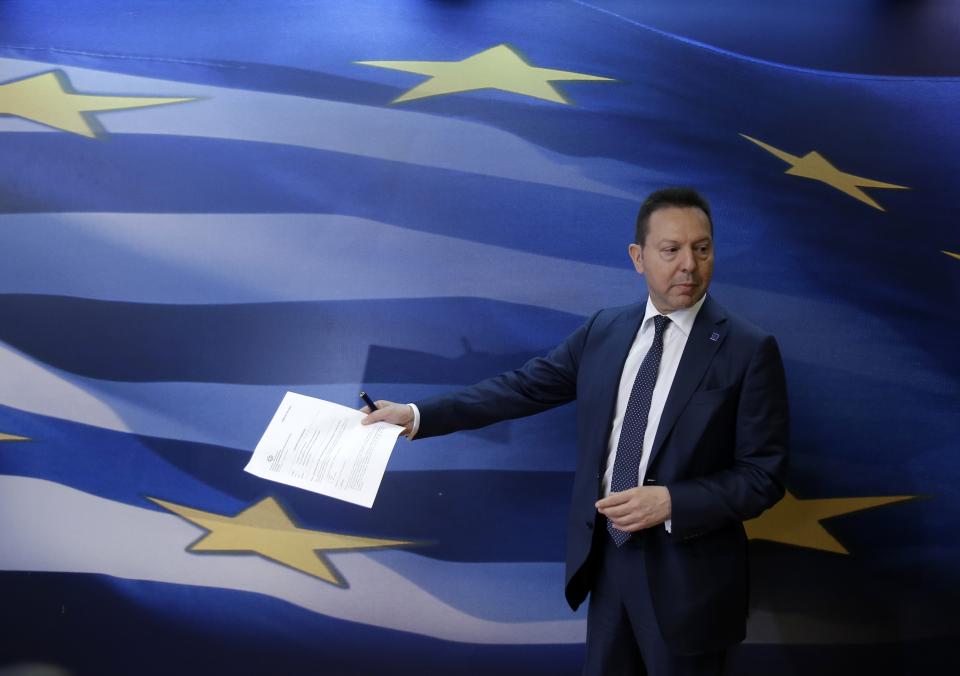Greece: strong demand for first bond in 4 years
ATHENS, Greece (AP) — Buoyant Greek officials hailed the country's first bond sale in four years as an overwhelming success, with the auction more than eight times oversubscribed and garnering a lower interest rate than expected.
The government was initially seeking to raise 2.5 billion euros ($3.45 billion) in the sale, which is a milestone for the country. Greece has been locked out of the markets since 2010, when its borrowing rates spiked upon the revelation that its public debt was much larger than previously estimated.
Government spokesman Simos Kedikoglou said the country would accept about 3 billion euros of the offers for the bonds and would pay an interest rate of just under 5 percent, below initial estimates.
"It's a huge success," Deputy Prime Minister Evangelos Venizelos said after a meeting with the prime minister, adding that the sale was eight times oversubscribed.
The final auction results, including the average interest rate Greece will pay investors, were expected later in the day.
Greece's borrowing rates have fallen in recent months as public finances improved following four years of painful spending cuts and tax hikes that were required in exchange for the bailout loans it began taking in 2010.
"Greece has succeeded — and this is recognized by our most critical friends and partners — in achieving an exit from the crisis, or is very close to an exit from the crisis," Finance Minister Yannis Stournaras said during a speech in Athens.
"It seems that the world community now trusts Greece once more," he added in a later press conference.
Joaquin Almunia, vice president of the European Commission, the EU's executive arm, also praised the sale: "To me today is a very good day from the point of view of the results after the big efforts by Greek authorities and Greek society, Greek citizens, to overcome this terrible crisis."
However, ratings agencies still consider Greek bonds to be far from investment grade, given them a junk status. The country has not committed to regular auctions of long-term debt, and still draws funds from its bailout from the International Monetary Fund and other eurozone countries.
Economists at prominent think tanks in Germany cautioned against reading too much into the auction's success, noting that investors were likely cheered by the fact a further writedown on Greece's debt looks unlikely. Private investors holding Greek government bonds suffered losses of about 75 percent during a debt reduction scheme in 2012.
Ferdinand Fichtner of the German Institute for Economic Research said investors assume, given the stance of European politicians and the European Central Bank, that the probability of another debt writedown "during the lifetime of this bond is relatively small."
"Against this background, I wouldn't overestimate this success, which is certainly very pleasing," he said. "I think what is more important is that the political situation in Greece ... proves to be stable — that, I think, is what in the medium to long term will restore the confidence of capital markets."
Improvements in the wider economy, however, are still slow to come by. Figures released Thursday showed the unemployment rate dipped to 26.7 percent in January from 27.2 percent in December in seasonally adjusted terms.
Greece has seen its unemployment rate skyrocket during the financial crisis that has wiped out a quarter of the country's economy.
___
Geir Moulson in Berlin contributed to this report.





